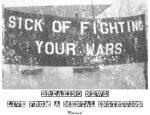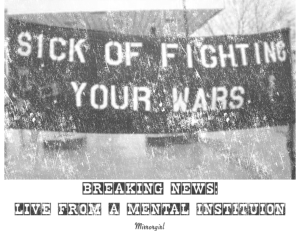My New Year has been punctuated by some wonderful reads. My most recent literary exploration has taken me to The Examined Life, written by the estimable Stephen Grosz.

Above from Amazon
It is as compelling as it is powerful. This books provides a truly wonderful insight into the human condition, which is all the more illuminated by Grosz’s accounts of the human experience through those he has a privilege to care for in analysis. And this care, this bond between analyst and patient, shines forth from each and every page.
As I finished the book and flopped back onto my comfy sofa, my mind whirring as it started to mentally walk through each of the cases Grosz shared, and as I pondered what it would be like to to be a psychoanalyst from Grosz’s description of the work, I picked up my pen and started to write.
This is what I wrote:
“It seems to me like psychoanalysis helps (in a similar way to CBT – Cognitive Behavioural Therapy) each patient to develop a form of self-awareness of their situation and, thus, empowers them to actualise some kind of catharsis (a means of processing or providing relief from strong or repressed emotions) through this knowledge.
From the many accounts Grosz gives, it looks like this catharsis is predominantly achieved through Grosz’s patients wanting to know they were not alone. They wanted someone to listen to them, and therefore demonstrate that they were worth being listened to. They are valuable and worthy of time and consideration.
For others, providing an explanation for their actions, providing them with words to account for their experience brings clarity from confusion, and again, enables them to clear the mental haze and see the road ahead, and the various routes open to them to embark upon.
This kind of piercing insight, analysis, is invaluable.
Much like slipping into a hot bath, it strips us of our shivering fears, isolation and anxieties and soothes our very beings as we are enveloped with with caring, careful clarity – a way of making sense of our dis-order, which too, is why interpreting dreams is such a powerful catharsis. However, whilst understanding the mechanisms behind each dream by placing the pieces of the jigsaw puzzle together brings relief, all this really grants us is what we already knew. For Grosz, it was the fear of losing his son. I admit, there is great beauty in ordering and understanding our dreams, but as Grosz himself allows by sharing the sad case of one AIDS patient who acted upon Grosz’s insights by going on holiday (where he died from dysentery, rather than receiving the medication he needed), Grosz’s attempts to help this patient understand his situation, could not change the situation itself. It leads me to think something more is needed…
As Grosz notes the incident of an eminent American psychoanalyst (Ap) questioning him as to why he bothered helping another AIDS patient (Anthony) who could “expect to live for two years and hope to live for four” (p.199), the Ap asks, “Why are you wasting your time on this patient? He’s going to die. Why not help someone who’s got a future?” (p.201)
It strikes me that if what Grosz writes elsewhere in the book is true, namely that
“The future is not some place we are going to, but an idea in our mind now. It is something we’re creating, that in turn creates us. The future is a fantasy that shapes our present” (p.157)
then, Anthony’s future is his present.
Grosz describes how this penetrating question felt cruel to him. After all, what was clear to them both was that analysis had helped Anthony to overcome his anxiety and depression (p.203). The reason, I wonder, Grosz found this challenge cruel was because his engagements with Anthony were meaningful. Not only was there purpose to the analysis, but it was yielding personal results in Anthony, even if these personal results did not change the ultimate outcome of his imminent death.
As I read on, I could not help but smile with joy when Grosz informs his audience that Anthony, twenty two years later, is in good health. It feels like an overwhelming victory. Not only was there evident contemporaneous meaning to Grosz’s meetings with Anthony, but, there is now ongoing life, too.
As joyful as this is, it does not really make up for “death’s finality” (p.210), which will ultimately visit Anthony. Perhaps I have oversimplified things, but it leads me to think something more is needed…”
The Examined Life by Stephen Grosz really is one of those rare penetrating reads, which will not only help you to understand others, but quite dramatically, yourself. I thoroughly recommend it!





 An anchor woman holds her microphone steady as she reports live from ‘We have the power’ , an old mental institution where the walls should have been painted decades ago. Her voice intermingle with twenty other reporters looking seriously into the camera, pointing occasionally to the building behind them. The anchor woman turns her voice dramatically down when she arrives at the conclusion.
An anchor woman holds her microphone steady as she reports live from ‘We have the power’ , an old mental institution where the walls should have been painted decades ago. Her voice intermingle with twenty other reporters looking seriously into the camera, pointing occasionally to the building behind them. The anchor woman turns her voice dramatically down when she arrives at the conclusion.













